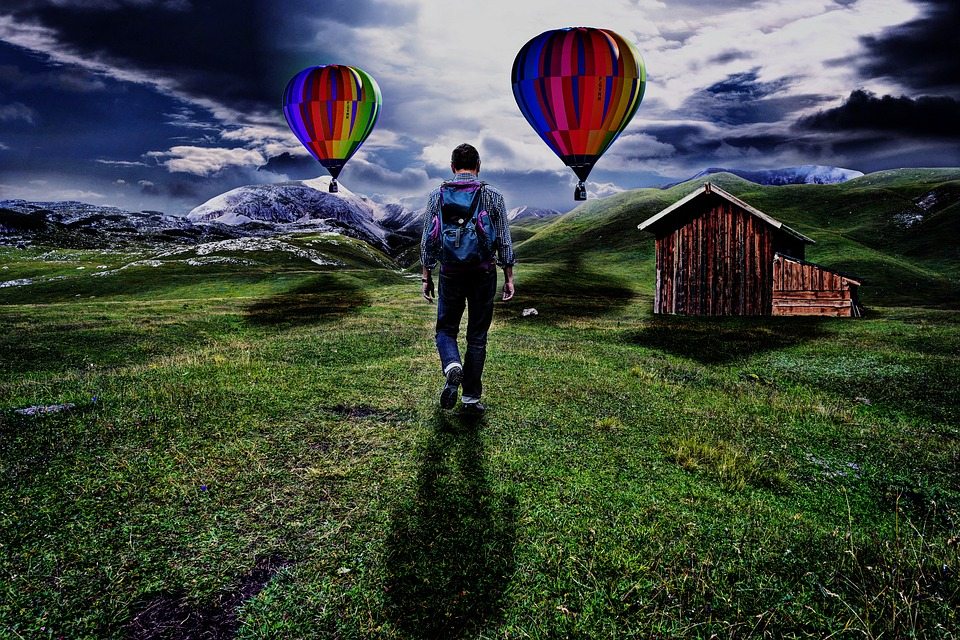
10 Things You Should Know Before Hiking in Summer
School’s almost out and you know what that means! More and more families will be heading out to national parks and reserves to enjoy the outdoors. Though it will be most likely be scorching like usual this season, it won’t stop people from hiking, camping, and taking on the trails like they’ve done for years. Make sure you know these facts before you head outdoors.
1. June 4th is Kick-Off Day

June 4th is National Trails Day and the ultimate kick-off point for summer recreation in the parks. On this day, thousands of activities will be going on in parks around the country, and they shouldn’t be missed.
2. Sandals are Perfectly Okay

A good pair of hiking boots or sneakers is really important, but they are also really uncomfortable to wear in the summertime. Having your feet locked in beneath a strong pair of shoes and socks will keep the heat from escaping your body, making you feel even hotter. Contrary to popular belief, wearing sandals to hike is perfectly safe and will let your feet breathe. A good hiking sandal can offer the same amount of hiking support as a boot. They are lightweight to make hiking easier, and are waterproof in case you want to get a little wet. Don’t let anyone tell you you can’t hike in sandals!
3. Check the Water Situation
Though we’d like to think of the U.S. as typically having a safe water supply, there are exceptions. You should always think twice before drinking any water you’re not sure about. Keep an eye on places on the National Park Service website that are having issues with water. Right now, one of these places is below the rim in the Cross-Canyon Corridor of the Grand Canyon. Water is always important to have on hikes, but even more so in the summer. Be aware of the water situation before you head anywhere, and make sure you have enough water or a treatment plan ready to go.
4. Watch Out for Badgers and Other Animals
Winter is over, mating season is in full motion, and there are plenty of animals that like to come out and play in the summertime. Though many of these animals are nocturnal, that’s even more of a reason to clean up your campsite and make sure there’s nothing out to attract animals, specifically badgers. They may look cute and cuddly, but badgers are not scared of anything. Though they could help you out if a bear, coyote, or rattlesnake comes around, they should otherwise be avoided.
*Note: The honey badger does not live in the U.S, though it shares similar characteristics to the American Badger.
5. Global Warming Will Affect Your Hike
Regardless of what your stance may be on climate change, there is absolutely no denying the fact that the temperatures in some parts of the U.S. are going to be well over where many of us draw the line on going outside. If you plan on hiking in August, make sure you do so in the early morning. Do not hike between 10 AM and 4 PM, when most heat-related injuries occur. Don’t ever push yourself if it gets too hot, as extreme temperatures can very well kill you. Please check the weather before you go anywhere and take warnings seriously.
6. Be Aware of Bug-Related Diseases

Every year, Lyme Disease is growing by 329,000 cases each year, and deer ticks are only one of the species that carry a horrible disease such as this. In the summertime, people are more prone to getting bit by various types of bugs and insects due having their skin more exposed. Protect yourself when you can, make sure you check after each hike, and report to a doctor if you start having unusual symptoms.
7. Double Your Intake
You lose fluids twice as fast in the heat as you do in normal weather. To supplement this fluid loss, you must drink at least ½ quart of water for every hour you hike outside. You should also drink electrolytes as your body will need more of them in this weather, so pair up your water with a sports drink like Gatorade. Additionally, eat salty foods and snacks, and take in double of what you would normally eat to keep your energy levels high.
8. Take a Dip
One way to cool down when it’s super hot in the summer is by getting yourself wet. Whenever you get the chance, douse yourself with some cool water or go for a swim in a nearby lake. This helps get your core temperature down and puts you at a lower risk of getting sick from the heat. Of course, just because you are swimming doesn’t mean you don’t need to drink water! Stay hydrated no matter what you’re doing.
9. Hypothermia Is Still a Concern

If you need to cool yourself off to beat the heat, that’s fine, but it’s important to not shock yourself with freezing cold water. It’s also essential that you dry out, and don’t forget to bring layers for those chilly nights in the desert. Some people think that they aren’t at risk of hypothermia because it’s not cold in the summer. They’re wrong. Not being prepared with an extra change of clothes if you get wet, or a warm sweater for nighttime, can put you at the same risk of getting hypothermia as in winter.
10. Summer Means More People
Summertime in North America always means more people hitting the outdoors. While this is great news, don’t forget your trail etiquette, and be kind to others. Keep the trail clean, stay safe, and most of all, have fun!













